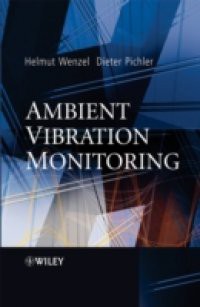In-operation vibration monitoring for complex mechanical structures and rotating machines is of key importance in many industrial areas such as aeronautics (wings and other structures subject to strength), automobile (gearbox mounting with a sports car body), rail transportation, power engineering (rotating machines, core and pipes of nuclear power plants), and civil engineering (large buildings subject to hurricanes or earthquakes, bridges, dams, offshore structures). Tools for the detection and the diagnosis of small changes in vibratory characteristics are particularly useful to set up a preventive maintenance policy based on the actual evolution of the state of the monitored machine or structure, as opposed to systematic a priori planning. Ambient Vibration Monitoring is the backbone of such structural assessment monitoring and control. It provides the possibility to gain useful data under ambient conditions for the assessment of structures and components. Written by a widely respected authority in this area, Ambient Vibration Monitoring describes the current practice of ambient vibration methodologies illustrated by a number of practical examples. Designed to aid the practical engineer with their understanding of the topic, it is the culmination of many years of practical research and includes numerous real world examples. It also provides information on applicable solutions. This book will enable not only practitioners (in civil, mechanical and aerospace engineering), but also researchers and students, to learn more about the theory and practical applications of this subject.

